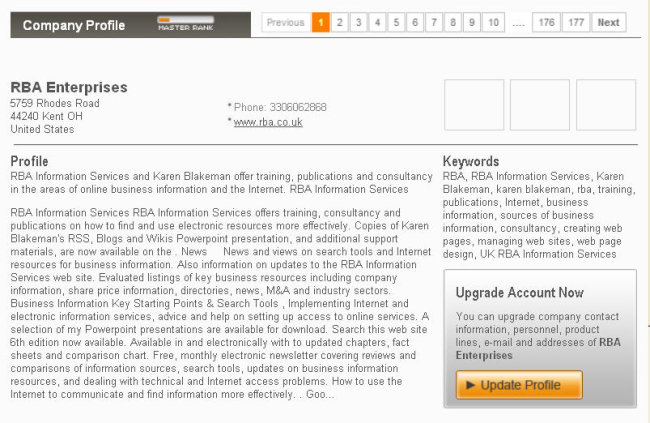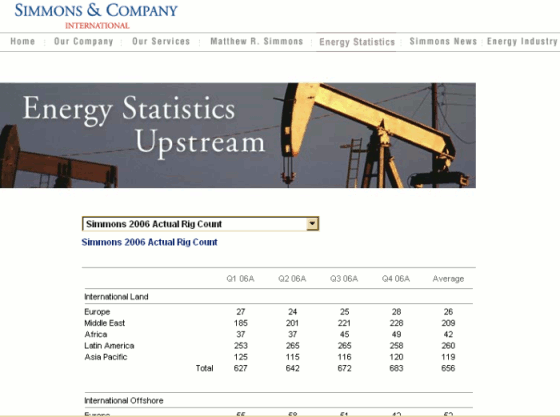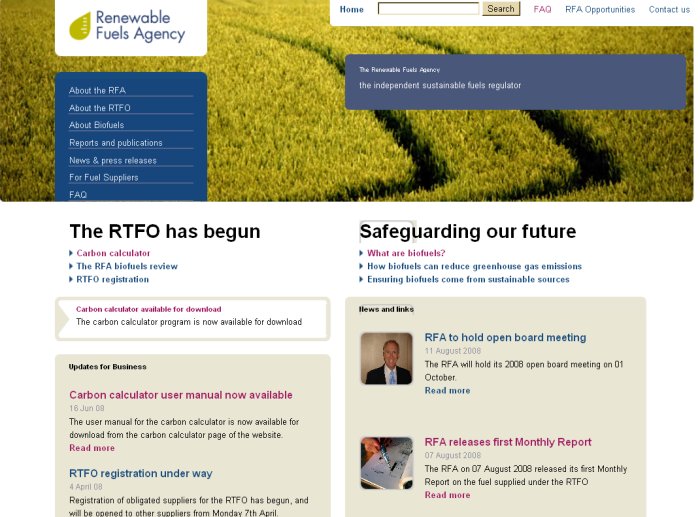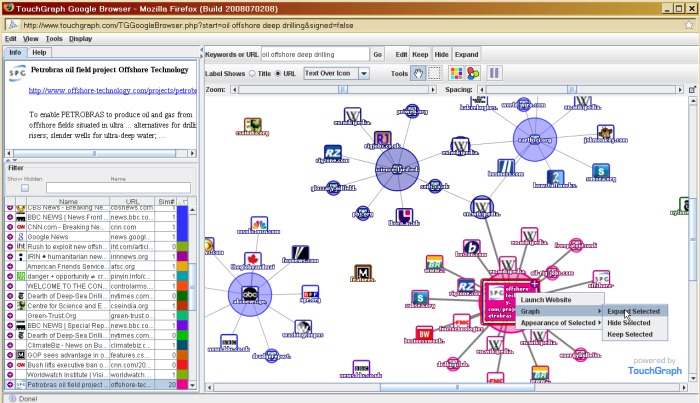Rearrange the following words into a well known phrase or saying: pole – a – barge – don’t – with – touch.
I picked up the news of Masterseek’s imminent launch from AltSearchEngines. Worth investigating further, I thought, especially as I am always on the lookout for quality business directories.
From their press release:
“A new enormous business search engine battles Yahoo! and Google for B2B searches. Masterseek’s global search engine provides quick and free access to, among other things, company profiles, contact information, and descriptions of products and services from more than 45 million companies in 75 countries. …. Behind Masterseek lies nearly 9 years of diligence from Danish and international programmers.
The unique feature of Masterseek is the specially developed crawlers that can sort out irrelevant private websites automatically and simultaneously gather and index relevant company websites quickly and diversely. This includes company profiles, news, as well as contact and product information. The company information is at the same time in the process indexed in more than 50,000 business categories in 21 languages.”
This sounded promising so time to put it to the test and indulge in a bit of ego-surfing. My first search on RBA Information Services as a company came up with my own RBA, but gave its location as the US despite the co.uk domain name and contact details clearly stated as being in the UK. A quick email to Masterseek and it was corrected. But then it all went seriously pear shaped.
23rd September 2008, 16.48 UK time: search on RBA Information Services and ‘All’ category selected.
Results: At the top of the list is a sponsored result for RBA Enterprises based in the US. Nothing to do with me but I am not too bothered as there are thousands of RBAs around the world. However the web site URL was mine and the profile was mine! Numbers 4, 5 and 6 in the results list were for Sources UK (electric cable manufacturers), RBA Enterprises Inc and RBA Internet Services Inc. All three had my web site URL and a profile extracted from my web site.

23rd September 2008, 17.08 UK time: search on RBA Information Services and ‘Company’ category selected.
Results: Only two. The first is a ‘sponsored result’ which is me, the correct URL and correct location. The second is identical to the first but the location is given as the United States.
23rd September 2008, 17.15 UK time: search on Karen Blakeman and ‘All’ category selected.
Results:The sponsored result at the top of the list was correct. The next four were totally unrelated companies but with my profile and there were another four dotted throughout the remainder of the twenty sites listed on the first page.
23rd September 2008, 17.31 UK time: search on Karen Blakeman and ‘Company’ category selected.
Results: Hurrah! I am the only entry.
I did a few quick searches on other companies and people and the quality of the results was equally dire.
There are additional search and browse options, but I saw no point in investigating them if the underlying data was so horribly wrong. Either the Masterseek “specially developed crawlers” were having a bad day or more serious work needs to be done on processing the information that they gather.
The press release goes on to say:
“Masterseek.com B2B searches will also be a competitor for well-established directories, such as Kompass, Thomson and the Yellow Pages, besides the obvious Yahoo! and Google.”
Given the current appalling quality of Masterseek’s data Kompass, Thomson and Yellow Pages can rest easy, as can Yahoo and Google.
Masterseek’s official global launch is due to take place in November by which time they claim that they will have more than 50 million pieces of company information and more than 1/4 billion indexed websites. Unless they apply more ‘diligence’ to the quality of the information in their database, my recommendation is to avoid this directory like the plague.



